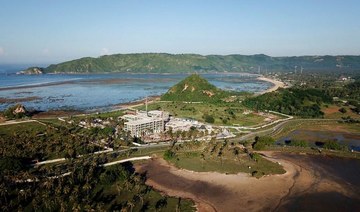KABUL: Najiba’s life as an educator came to a halt after the Taliban imposed a ban on girls’ education almost three years ago, a controversial policy that also forced many Afghan teachers out of the classroom.
When secondary schools for girls were suspended in September 2021 — a month after the Taliban took control of Afghanistan — it resulted in about 1.1 million girls being denied access to formal education and scores of female teachers losing their jobs, as the new policies only allowed them to teach in girls’ primary schools.
“We had this fear but didn’t know it would happen so soon. It was the hardest thing to know that I wouldn’t be able to teach anymore,” Najiba, an English teacher in Kabul, told Arab News.
“The change happened so suddenly and so quickly that it was difficult for me to cope with it. I developed very serious levels of stress and depression as a result of losing my job and my profession.”
For the 37-year-old who used to teach at a local high school, the consequences on her mental health were “irreversible” not just for her, but also for her family, as she was forced to stay at home most of the time.
“I feel I am becoming illiterate because I don’t study. I miss my students and colleagues every day and every moment. I feel lonely most of the time at home,” she said.
When the policy went into force, all female teachers from secondary and high schools were reassigned to elementary schools “where there was a shortage of teachers,” an official from the Afghan Ministry of Education told Arab News, declining to be named because he was not authorized to speak to the press.
“In addition, some of them were assigned to mixed schools, where boys and girls study in different shifts, to teach in the girls’ shift. The rest are staying at home,” the official said.
“The ministry’s plan is that only female teachers will teach in girls’ schools and male teachers will be transferred to boys’ schools. This has been successfully implemented in Kabul and other provinces.”
A year after their takeover, the Taliban had eliminated 14,000 government jobs held by women, the majority of which were teaching positions, according to a report published by the US government’s oversight authority on Afghanistan’s reconstruction known as SIGAR.
Yet despite the increasing uncertainty over the future of education for girls in Afghanistan, Najiba is still holding out hope.
“I really hope and pray something good happens and girls’ schools reopen so we can go back to where we belong, in the classroom and school. Nothing else will make us happy and help us get back to our normal condition,” she said.
For Khaperai, who used to teach at a secondary school in Jalalabad, the capital of the eastern Nangarhar province, the Taliban’s policies were taking a toll on her mental health and financial situation.
The 42-year-old has tried to no avail to get transferred to a primary school as there are no vacancies in her area.
“And I couldn’t leave my family. The change in my condition has not only impacted me psychologically but has posed economic challenges as well,” she told Arab News, adding that her husband has also lost his job due to the ongoing economic crisis.
“I was supporting my children’s education with my salary but since the last few months, our salaries have decreased. We only receive 5,000 afghanis ($70) in our accounts now. It’s not sufficient to support myself and my children. I don’t know what I will do.”
With women also restricted from many workplaces under the Taliban, Khaperai found herself with no other alternative.
“I can’t do any other job. Women have very few work opportunities under the Taliban, making it almost impossible for female heads of the family to support their families,” she said.
“I can only hope for a positive change. I can’t do anything else. No one seems to listen to us or care about us. We are left to the mercy of God.”



























